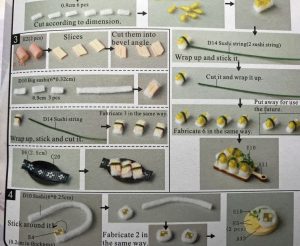Although Pa and Ma had high hopes for a better situation in California, it grieved me something sore when it came time to leave the farm. I had lived there for all of my life, and Grandpa Reverend was one of the first settlers around Mount Gilead. The truth is that the prospect of taking to the trail did not seem quite real to Brother Jon and I, until the very day that we finished packing the wagon with all of our traps and treasures, to stay at Grandpa Reverend’s house for a week or so until we departed for Missouri and the beginning of the trail west. The new owner, a man named Roberts, wanted to move his own family into the place before he began spring ploughing. It was not quite time for us to head west, as snow was still on the ground and the weather still very cold. Pa said we would linger a week, maybe two, if it stormed bad. The journey from Ohio would take us at least six weeks to get to the jumping-off place, if the weather stayed fair and we didn’t encounter any delays. We meant to go to Independence, on the great Missouri-Mississippi River, and join with other travelers to form a company to venture across what was then called the American desert.
“The grass has to have grown tall enough to feed the animals,” Pa explained. To me, it made perfect sense. Our team oxen had to graze, all eight of them, and Daisy the milk cow which was to come with us on the journey. The snow wasn’t anywhere near off the fields yet in Ohio, so it likely wasn’t any better in Missouri – or across the river, where the trail led west.
Still, it was a wrench to leave the farm, and see our house emptied out, the rooms echoing and comfortless. All the furniture – and there wasn’t much, as we were not rich folk – was sold or given away. Pa said cheerfully that he could always make more, as he was a fair hand at carpentering, as long as there was good wood to be had. On the last afternoon, Pa found me in the barn, where our favorite barn cat, Cally (for Calico) had birthed another parcel of kittens the week before. She had them in a nest of old horse blankets in the stall where we had kept harness and tack for the oxen.
They were beautiful kittens, and their eyes had just begun to open, all blue and wondering at that strange world around them. Cally was accustomed to Jon and I, so she let me hold the new kittens without raising a cat-ruckus. The largest was another calico, like their mother, but I liked best the orange kitten with four wee white paws and a white tip to it’s brief tail. I thought that was the sweetest of the litter. I was holding it in my lap, and letting it play with the end of a wheat-straw, when Pa found me. Boomer the hunting hound pattered after him, but he knew well enough not to pester Cally when she was nursing kittens. Boomer lay down on the old straw and rested his nose on his paws, while Pa asked Cally if she had caught any more mice that day, since mice were a plague in the wintertime, and came inside from the fields looking for warmth. Pa liked animals, and animals liked him, you see. There wasn’t a better hand with oxen or horses in the whole of Marion County then.
“I should have asked for another dollar for the place, seeing that a new passel of barn cats are included in the sale,” Pa said, finally.
“Pa, this one is so pretty,” I held up the orange and white kitten. I was crying, all of a sudden, like a ball of sadness suddenly unraveled inside me, like a skein of yarn. “Can’t I keep just this one, and take it with us to California?”
Pa heaved a sigh, shook his head and sat down on the straw next to me, while Boomer pricked his ears up and looked back and forth between us, as if he were wondering about what we were saying. “We can’t do that, Sugar-plum,” he replied. Sugar-plum was his pet name for me, and he used it only in the family. “It’s too little to be taken away from it’s mama. Besides, cat’s ain’t really at all like dogs. See – cats; they’re set on a place that they like. Oh, they’ll tend to like the people in it, well enough – well, mostly. But it’s the home-place they favor over anything. Not people so much. It’s pert-near impossible to move a cat from a place that it’s accustomed to. Now dogs,” and Pa fondled Boomer’s ears, “Dogs are different. Dogs favor the person they love over anything. Leave a house for someplace else, that dog will follow you over all creation. A cat will just yawn at you and wonder when that new person in the home place will give them some fresh milk. So, no, Sugar-plum. Leave the kitten with it’s Ma. Besides, I hear tell there’s wolves out west, big hungry prairie wolves. A little kitten like this wouldn’t last a minute, and you couldn’t keep a cat in a cage all that way to California. Tell you what, though,” and Pa ruffled Boomer’s ears again. “I can promise you this – when we get to California, and get ourselves a nice farm there, and have a good house – then I’ll get you a pretty orange kitten to keep for your very own. A pretty orange kitten with white feet, just like this one.”
“Promise, Pa?” I had no notion of the likelihood of finding an orange kitten in California, or even if they had cats there at all. I knew practically nothing about the place, even from hearing Pa and Ma and our friends talking about it.
“Of course, Sugar-plum. Now, wipe your eyes and blow your nose. Don’t I always keep my promises?” Pa fetched out a calico handkerchief from the front of his heavy roundabout jacket and handed it to me.
“You do, Pa,” I gulped, still feeling tearful. Pa kissed my forehead and said,
“Now, say goodbye to Cally and her babies, and go find your Ma – she’s packing up the last of those things that we’re taking with us, and needs your help.”
I walked through the house – from the kitchen, through the parlor, listening to the hollow sounds of my footsteps. I found Ma in the empty room where she and Pa had slept, folding the last of her good quilts into the small trunk. She stuffed a pair of good goose feather pillows into the top of the trunk. They didn’t really fit, until she punched them down as if they were riding bread dough and looked up at the sound of my footsteps.
“Sally, will you sit on the lid, so that I can close the latch?”
“Yes, Ma,” I answered. I did so, and Ma snapped the latches closed.
“You look sad, like you’ve been crying,” she said, and I nodded, still sitting on the trunk.
“It was … I wanted to take one of Cally’s kittens, and Pa told me why we couldn’t and then I was so sad to think of leaving… I don’t know why I felt like that, all of a sudden. It’s such a long way, Ma. So far from Grandpa Reverend and Aunt Rachael … even Granny Eliza in heaven, but her grave is here and…” I began to feel the tears coming on again, and Ma patted my cheek.
“It’s all right, Sally-child,” she said. “It is a very long way; so very much farther than it was from Pennsylvania to here, when I was a little girl and my ma and pa decided to come to the Ohio country. I cried then too, for leaving my friends and all the kinfolk around Downingtown. And oh, it was a wild frontier then, even more than California might be. The wars with the Indians were just barely over, back then. But there was something new to see, every day. So many curious and marvelous sights, and so many strange people! My ma – your Granny Sarah that you are named for – she told me that I should always look ahead. I should think of it all as a wonderful adventure, like in the old storybooks. A new story, a new page, every single day.”
“But what about Indians? And wild beasts – wolves and lions and such?” I asked. From what Jon and I had overheard the grownups talking, there were such dangerous things out along the long trail to California. Ma laughed.
“Oh, the stories that men do tell! I wouldn’t pay them too much mind, Sally-child. Men will say such things to each other, boasting how brave they are for facing such perils! Besides,” Ma added, “Your Pa will have his long hunting rifle, and I am certain that other men in our company will have such rifles and blunderbusses as they have thought to bring with them. I am certain that they will be the equal of any wild beasts or Indians that we might encounter! Now, help me carry this out to the wagon … I do believe that Father Kettering will be expecting us in time for supper tonight, and it has already gone past four…”
Ma and I carried the small trunk between us, until Pa came around from the barn with Jon, to help load it into the wagon, all hitched to three yoke of oxen, waiting in the farm yard, with Daisy the milk cow and the two extra oxen hitched to the wagon tail by long halters. The sky was grey overhead, with a scent of snow in it; spring seemed as if a faraway dream.
Pa lifted Jon up to the wagon seat, but I scrambled up by myself, up and over a wagon wheel nearly as tall as myself. Ma came up with a boost from Pa, and we all squeezed together on the wagon seat, huddled against the cold. Pa strode with his big stock whip in hand and gave a quiet command to the lead pair. The wagon lurched once, and then rolled steady, lurching as the wheels turned. Out of the farmyard, past the blank windows of our house, the house that wasn’t ours any longer but belonged to Mr. Roberts, and onto the winter-rutted road that led to town.
I didn’t look back. Ma had said, always to look ahead.




Recent Comments